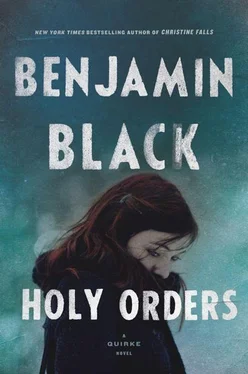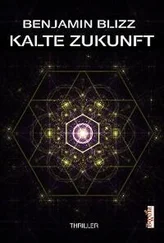Quirke only smiled, and went on toying with his fish. “Wouldn’t you like to marry, settle down?” he asked mildly.
“Married is one thing, ‘settling down’ is quite another.”
“I see. You’re going to be the independent type, wear trousers and smoke cigarettes and run for parliament. Good luck.”
Phoebe gazed at him, where he sat with his head bent over his plate. His tone had suddenly taken on a sharper edge.
“Maybe I will do something like that,” she said, sitting up very straight, “go into politics, or whatever. You don’t think I’m capable of it.”
He was silent for a moment, looking sideways now into the sunlit street. “I think you’d be a success at whatever you set your mind to,” he said. He turned his eyes to hers. “I only want you to be happy.”
“Yes,” she said. “But is being married the only kind of happiness you can imagine?”
She saw him wanting to say more but holding back. She supposed she was a disappointment to him, working in a hat shop and having his assistant for a boyfriend. How ironic, she thought, considering all the years he had gone along with the pretense that she was his sister-in-law’s daughter and not his. Yet she could not be angry with him. He had suffered so much. The woman he’d loved had married someone else and then the woman he did marry had died. What right had she to pass judgment on him — what right had she to pass judgment on anyone?
They talked for a while of other things, her work at the shop, the crassness of customers, Mrs. Cuffe-Wilkes’s bullying ways. She mentioned a trip to Spain that she was considering going on. She waited for him to ask if David would go with her, but he did not, and the unspoken question hovered above the table like a heat haze, warping the atmosphere between them. This was delicate territory. She knew Quirke wanted to know if she and David were sleeping together, but she knew too that he would never have the nerve to ask.
“Tell me,” he said, “how is that friend of yours? — what’s his name?”
“Which friend?”
“That chap who works for the Clarion .”
“Jimmy Minor?”
“Yes. That’s him.” He was, she saw, avoiding her eye again.
“What about him?”
With an index finger he pushed his plate carefully to one side. “Have you seen him recently?”
“Not for a week or two. You haven’t touched your fish.”
“No appetite.”
He was frowning, and now he took a long swallow of wine. She watched him closely, feeling the first inkling of alarm. Jimmy: it was Jimmy he had brought her here to talk about. Oh, God, what kind of hot water had her friend got himself into this time, she wondered.
“I saw him this morning,” Quirke said. He sucked his teeth. He would look at anything except her.
“Oh? Where?”
He reached inside his jacket and brought out his cigarette case, flicked it open, offered it across the table. She shook her head. “I forgot, yes,” he said. “You gave up. Good idea. Wish I could.”
He lit his cigarette, blew smoke towards the ceiling. Then he looked directly at her, for the first time, it seemed to her, since they had sat down, and smiled peculiarly, with a woeful, apologetic slant. “I saw him at the hospital,” he said. “I did a postmortem on him.”
* * *
Afterwards, when it was too late, he realized how clumsy he had been, how badly he had managed it. At the time he had felt that by mentioning the postmortem first he would be sparing her the shock of being told straight out that Minor was dead. But of course his words had the opposite effect. To him the term “postmortem” carried no weight, was entirely neutral, while to Phoebe, he supposed, it conjured up an image of her friend laid out on a slab with his sternum cut open and all his glistening innards on show.
In the moments after he had made his faux pas she had sat very still, gazing at him blankly, then had stood up so quickly her chair had fallen over backwards, as if in a dead faint, and she had hurried from the room with her napkin pressed to her mouth. Now he waited, in consternation, furious at himself. He splashed out the last of the wine from the bottle and drank it off in one go. Putting down the glass he noticed a stately matron at the next table glaring at him accusingly. Probably she thought him a drunken roué whose indecent suggestions had caused the young woman he was treating to lunch to flee from the table. He glared back, and she turned away with a toss of her head.
After a while Phoebe returned, and sat down again gingerly in the chair that he had set upright for her. She was starkly pale; he guessed that she had been sick. He did not know what to say to her. She sat before him with eyes downcast and her hands in her lap clutching each other as if for dear life. “What happened?” she asked, in a small voice.
“We don’t know yet.”
“‘We’?”
“I,” he said. “I don’t know. He was beaten, very badly. I’m sorry.”
She was looking out into the street now. “Isn’t it strange,” she said, as if to herself, “how sunlight can suddenly seem to go dark?” She turned her eyes to him. “Are you saying he was killed? That he was murdered?”
“Well, killed, certainly. I suppose whoever it was that gave him the beating may not have intended that he would die. But when he did they dumped him in the canal at Leeson Street Bridge, by the towpath there.” Quirke knew the spot, knew it well, and now he saw it in his mind, the darkness, and the dark, still water.
“Poor Jimmy,” Phoebe said. She sighed, as if she were suddenly very tired. “He always seemed so — so defenseless.” Now she looked at him again. “You met him, didn’t you?”
“Yes, yes, of course.”
“Did I introduce him to you?” It seemed a point to which she attached much significance.
“I don’t remember,” Quirke said. “Maybe you did. But I would have known him anyway. He was a crime reporter, after all.”
“Yes, of course.” A thought struck her. “Do you think it was to do with his work? Do you think someone he was writing a story about might have…?”
Quirke was rolling a crumb of bread back and forth on the table under a fingertip, making a pellet of it. He did not speak for some time, and then he did not answer her question. “Was he working on something, do you know?” he asked. “I mean, was he writing something, something in particular — something important?”
She gave a mournful little laugh. “Oh, I’m sure he was. There was always a ‘story’ he was following up. ‘Jimmy Minor, ace reporter,’ that’s what he used to call himself. He meant it only partly as a joke — he really saw himself as a newshound out of the pictures. You know, one of those ones in trench coats, a card with ‘Press’ written on it in their hatbands, and always with a cigarette in the corner of their mouths.” She sighed again, distractedly; she seemed more baffled than distressed. The full realization of the thing, Quirke knew, would come only later.
“Did he have other friends, as well as you?” he asked. “Someone close to him, someone who might know more about what he was up to?”
Phoebe shook her head. “I don’t know,” she said. “I’m just realizing how very little I knew about him, about his life, or the people he went around with. He’d just appear, and then go off again. I’m not sure he even thought of me as a friend.”
“What about his family?”
“I don’t know about them, either. He was secretive, in odd ways. I mean, he was friendly and — and warm, and all that — I liked him — but he kept himself to himself. He never spoke about his family, that I can recall. They live somewhere down the country, I believe. I think his parents are alive — I just don’t know.” She paused. “Isn’t it awful? I was around him for years and yet hardly knew him at all. And now he’s dead.”
Читать дальше












